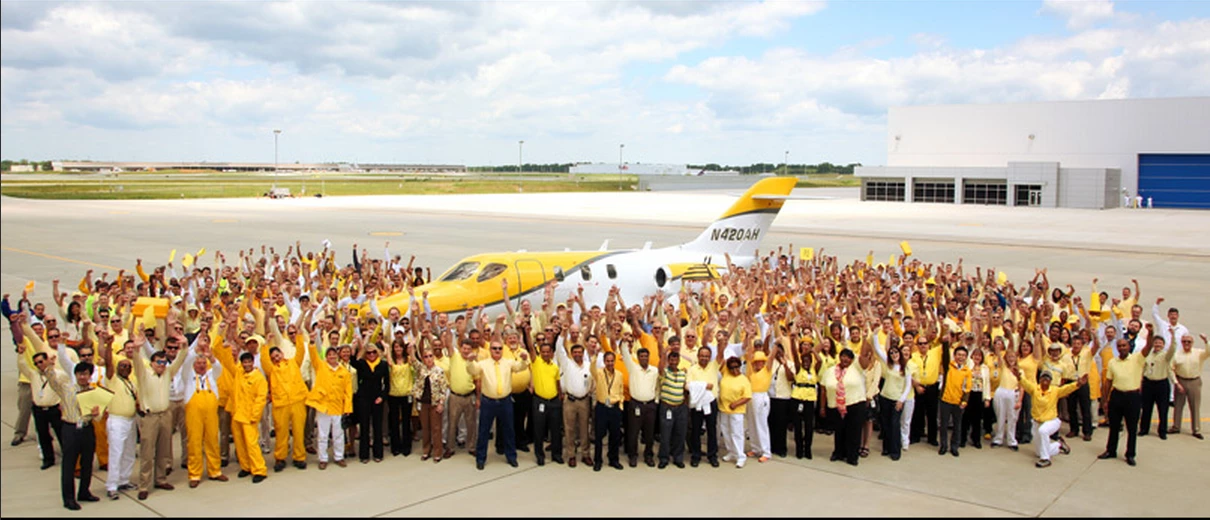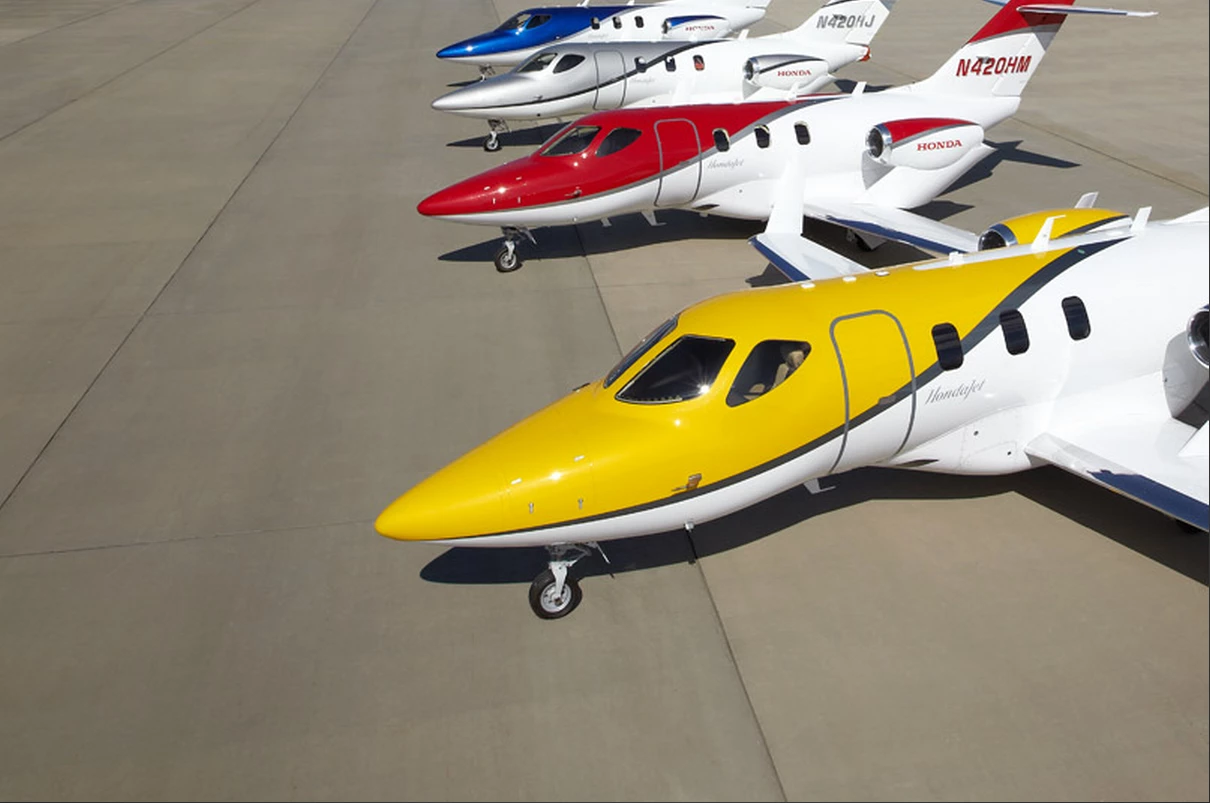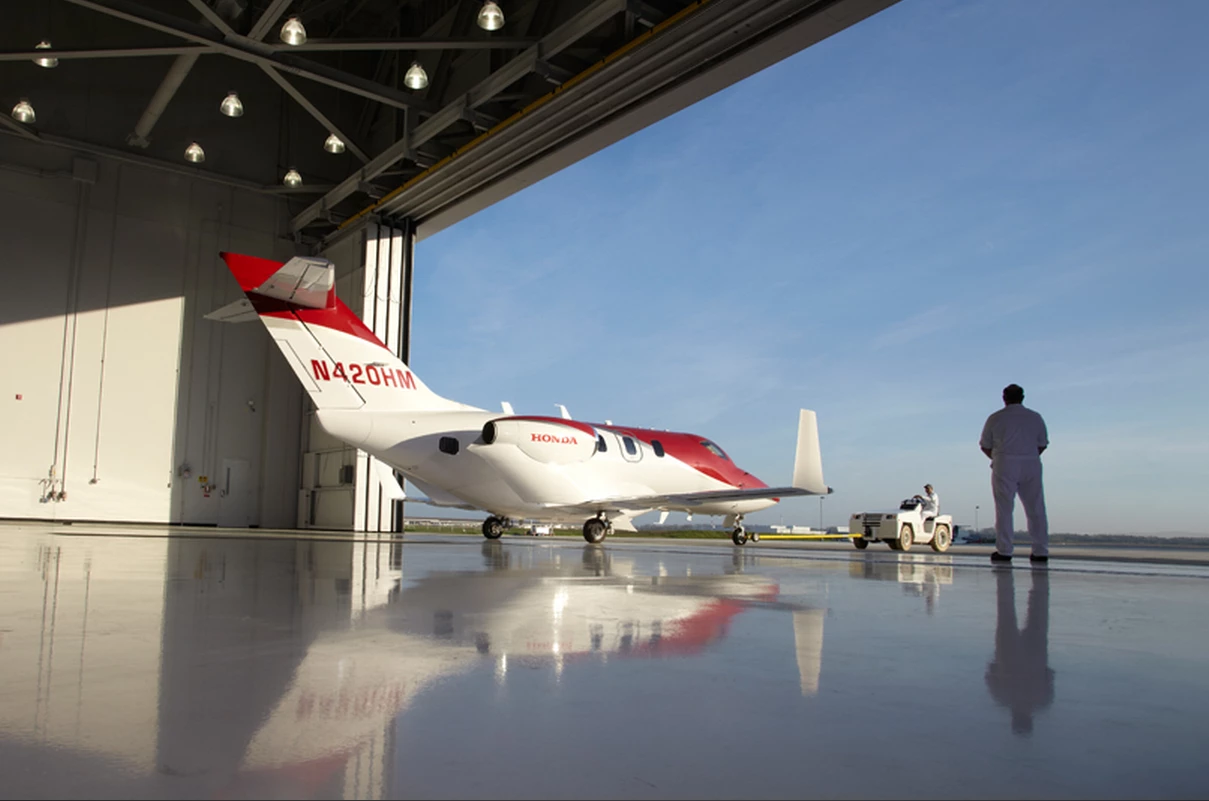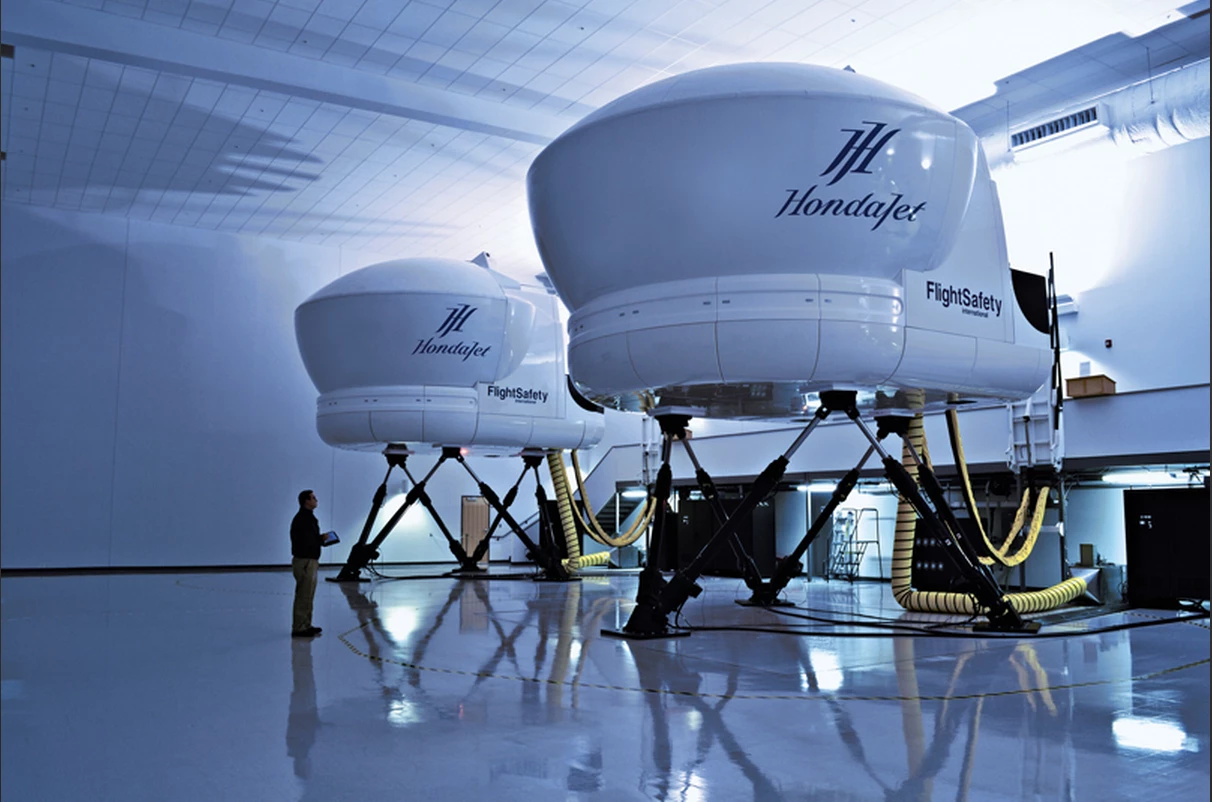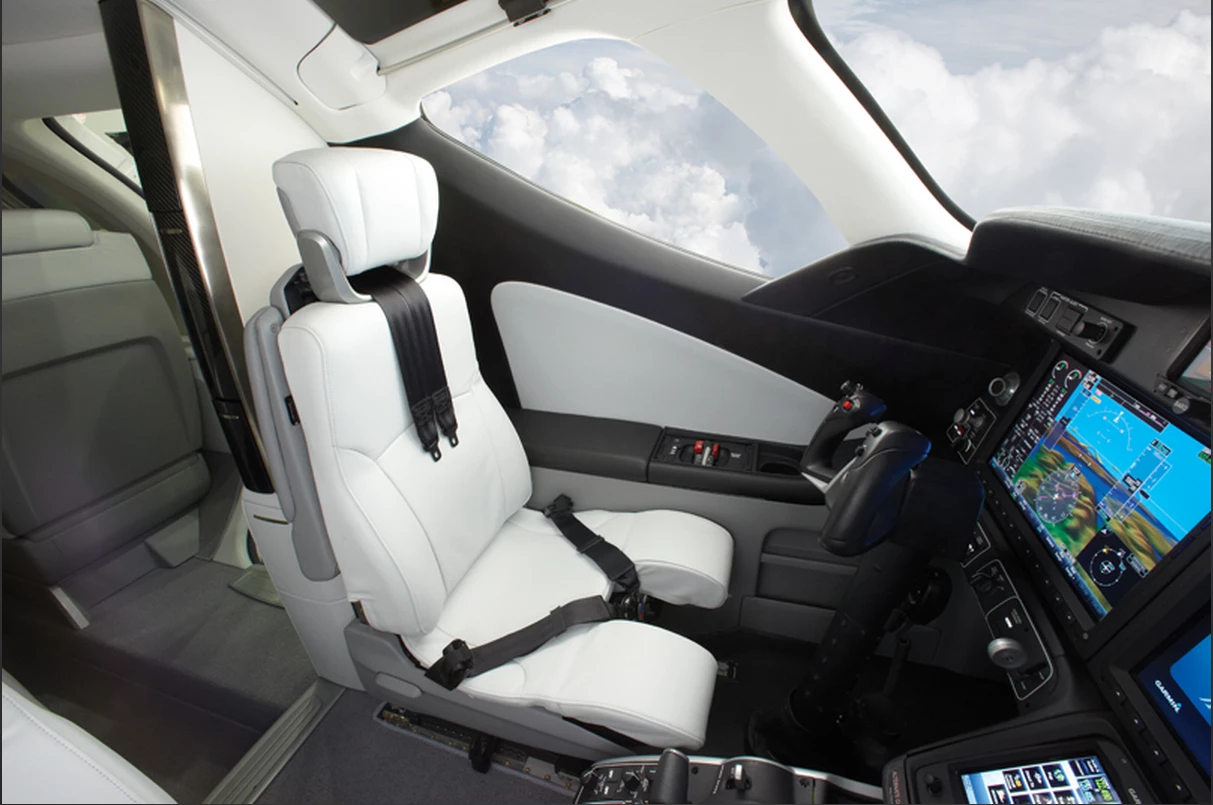The Honda Aircraft Company has announced that its HA-420 HondaJet business jet is entering production. At a press conference at the National Business Aviation Association (NBAA) annual meeting and convention in Orlando, Florida, Honda announced that the “world’s most advanced light jet” had passed key testing milestones and is on its way to certification and delivery.
“An assembly line for HondaJet production is in place, major aircraft components including the fuselage and wing have been produced, and we have started assembly of the first customer aircraft,” said Honda Aircraft President and CEO Michimasa Fujino. “Commencing production is the most important milestone in the HondaJet program to date, with only the future Federal Aviation Administration Type Certification and first customer delivery ranking greater in significance.”

HondaJet is Honda’s first commercial aircraft. With a lightweight composite fuselage and reinforced aluminum wings, its distinctive profile comes from its over-the-wing engine-mount configuration for its two GE Honda HF120 turbofan jet engines. This is designed to improve performance and fuel efficiency by reducing aerodynamic drag.
Carrying up to six passengers, the HondaJet has a 12.15-meter (39-ft, 10-in) wingspan and overall length of 12.71 meters (41 ft, 8 in). Its cruising speed is 778 km/h (483 mph, 420 kn) and it has a range of 2,593 km (1,611 mi, 1,400 nmi). Its airframe design reduces cabin noise and ground-detected noise as well as providing more cabin space and greater cargo capacity. In the cockpit, there is a Honda-customized Garmin G3000 next-generation all-glass avionics system with three 14-inch landscape-format displays and dual touch-screen controllers.

The HondaJet has completed crew-seat crash tests, speedbrake testing, ultimate load tests, EASA windshield bird-strike testing, wind tunnel icing tests, night lighting testing, as well as extreme weather tests. Next year, Honda will provide the United States FAA with the latest two in a series of six HondaJets for flight testing.
The HondaJet also sees the introduction of new manufacturing processes for Honda that include making assembly floor instructions available on tablets, an on-site paint mixing system for thinner paint and the ability to paint several planes, and an Automatic Guided Cart (AGC) – a robot cart to pick up and deliver parts. In addition, Honda has begun construction of a Maintenance, Repair and Overhaul (MRO) facility capable of simultaneously servicing 12 HondaJets, and the installation of HondaJet flight simulators at the Honda Aircraft world headquarters campus in Greensboro, North Carolina.
Source Honda Aircraft Company




